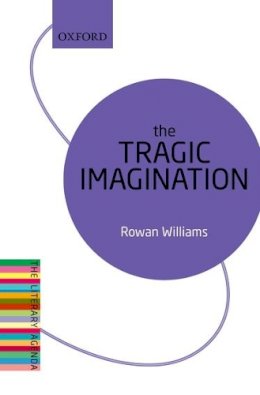
Stock image for illustration purposes only - book cover, edition or condition may vary.
The Tragic Imagination: The Literary Agenda
Fynn
€ 33.15
FREE Delivery in Ireland
Description for The Tragic Imagination: The Literary Agenda
Paperback. .
The Literary Agenda is a series of short polemical monographs about the importance of literature and of reading in the wider world and about the state of literary education inside schools and universities. The category of 'the literary' has always been contentious. What is clear, however, is how increasingly it is dismissed or is unrecognised as a way of thinking or an arena for thought. It is sceptically challenged from within, for example, by the sometimes rival claims of cultural history, contextualized explanation, or media studies. It is shaken from without by even greater pressures: by economic exigency and the ... Read more
The Literary Agenda is a series of short polemical monographs about the importance of literature and of reading in the wider world and about the state of literary education inside schools and universities. The category of 'the literary' has always been contentious. What is clear, however, is how increasingly it is dismissed or is unrecognised as a way of thinking or an arena for thought. It is sceptically challenged from within, for example, by the sometimes rival claims of cultural history, contextualized explanation, or media studies. It is shaken from without by even greater pressures: by economic exigency and the ... Read more
Product Details
Publisher
Oxford University Press
Format
Paperback
Publication date
2016
Series
The Literary Agenda
Condition
New
Weight
185g
Number of Pages
178
Place of Publication
Oxford, United Kingdom
ISBN
9780198736417
SKU
V9780198736417
Shipping Time
Usually ships in 4 to 8 working days
Ref
99-1
About Fynn
Rowan Williams is Master at Magdalene College, Cambridge.
Reviews for The Tragic Imagination: The Literary Agenda
There are insights and humane wisdom to be found on every page of Williams's study ... As Williams's incisive readings suggest, great tragedies can yield crucial moral knowledge. Preparing oneself to receive this knowledge, though, likely requires an imagination formed by other liturgies. Even then, perhaps, to watch a tragedy is to undertake a risk that promises no certain insight. ... Read more
